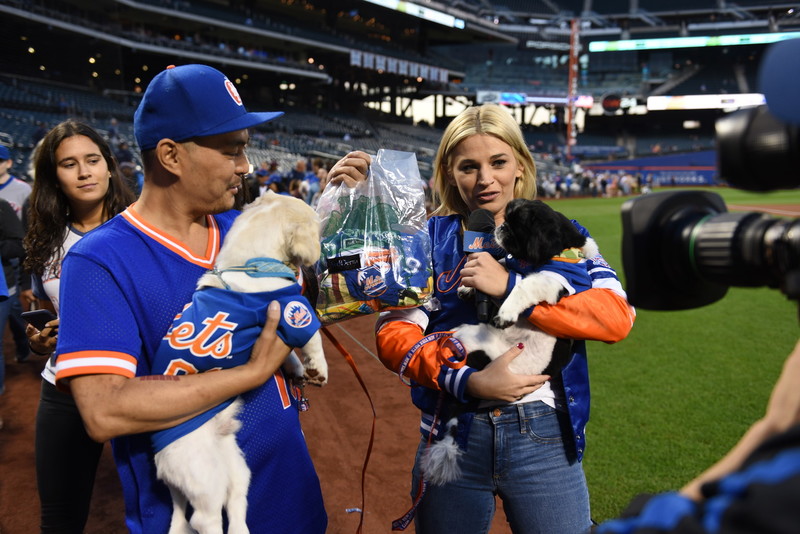For Volunteers’ Week, hear from three women who help bring some of the world’s biggest sporting events to life.
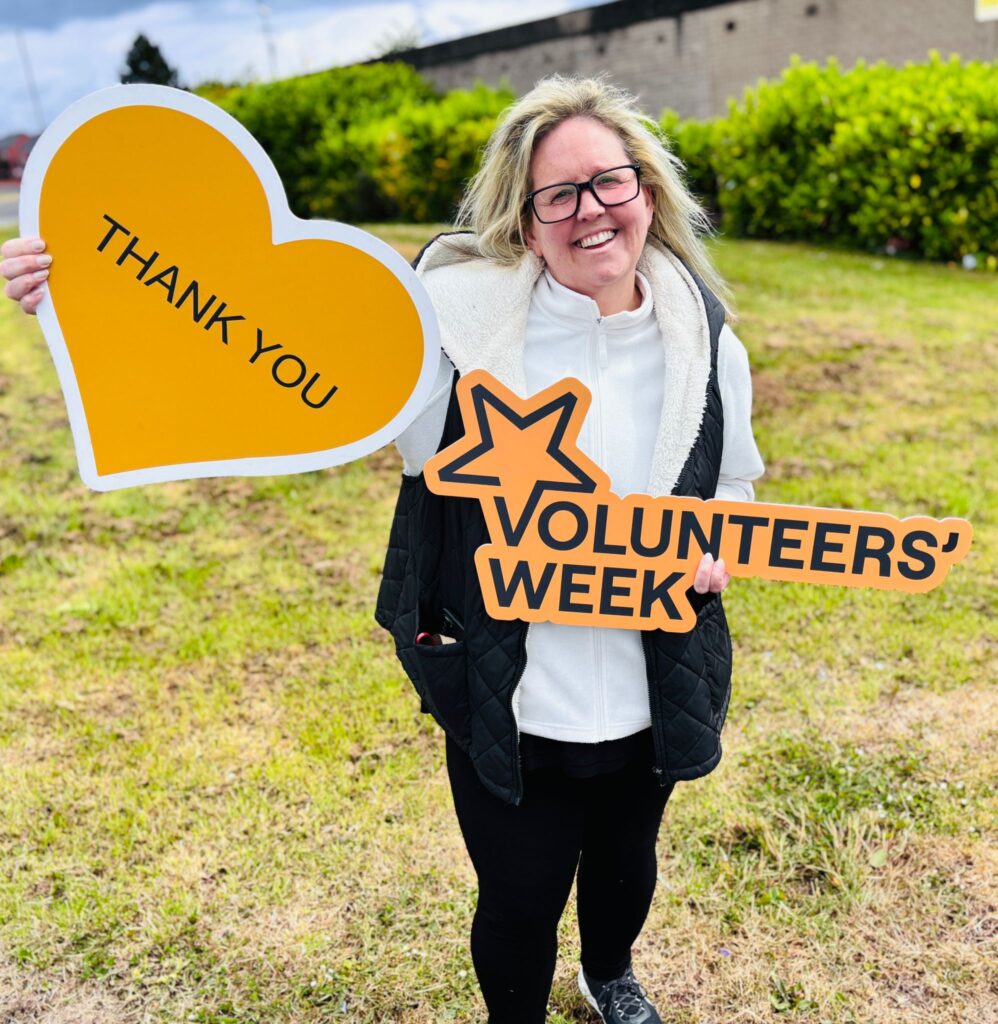
Karolyn Gaston
Karolyn Gaston, 53, has been volunteering for 36 years, including three Olympics, the Invictus Games and the Commonwealth Games.
Gifting your time is relatively free to give, but it’s priceless to receive – it’s the most precious gift you can give anyone.
If I could bottle and sell the impact of volunteering, I just can’t. I can’t function without it. It’s my adrenaline. It’s in my blood.
At the Olympics in Paris 2024 I stepped up as team leader. That was scary because you’re dealing with the top athletes in the world and the top press.
I was stood beside the fastest man on the planet and I had to put all the reporters’ phones on a tray underneath him because there were so many of them who couldn’t get close enough.
Noah Lyle’s sweat was dripping all over my shoulder and I was holding the world’s press right under his chin. I’m standing there going, oh my god, literally oh my god!
I think one of the main misconceptions around volunteering is that people don’t think we’ll make an impact.
Volunteers are the lifeblood of any organisation but particularly sport and the Olympics. In Paris there were 45,000 of us, there were 50,000 in Rio and 70,000 in London.
If we didn’t do what we did, those events wouldn’t happen.
There are a lot of challenges. All the hard work, the dedication, the time and financing it yourself, it’s not easy.
But to me, it’s worth it, especially when you get to see people achieve their goals, and know I had a small part to play.
It’s self-help. Volunteering is one of the best medicines you can take.

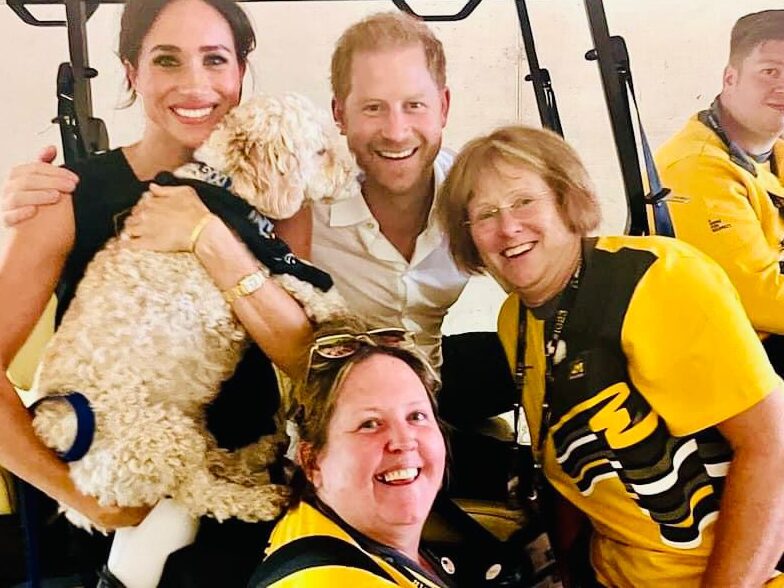
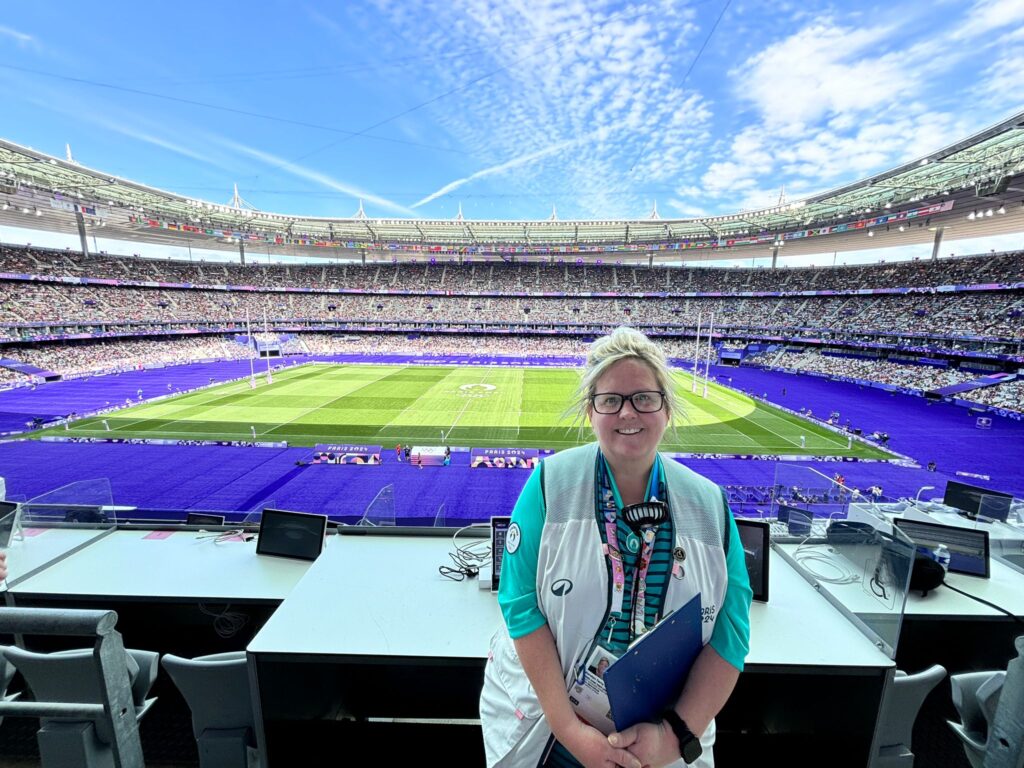
Julia Jones
Julia Jones, 53, has been volunteering for major sporting events for 13 years, including the 2012 Olympics, 2014 Commonwealth Games, and the Women’s Euros in 2022.
When it was the Beijing Olympics in 2008, I listened to a piece on the radio and it was an interview with somebody who was wiping up the sweat on the volleyball court as a volunteer.
At first I thought, “Ew, you’re not going to catch me doing that.” Then I found out they would be taking volunteers for the London 2012 Olympics and I thought, “You know what, if all I had to do was mop up the sweat on the volleyball court, I’d be absolutely delighted!”
Volunteers bring an energy that paid staff aren’t going to bring, and are great in terms of adding value and sparkle to an event.
At the London Olympics, paid security staff always used to say,”How come you are so upbeat, energetic and positive and we’re not?”

I said, “The difference is, yes, you are earning a lot of money, but I don’t have to be here: I’ve chosen to be here and I feel privileged to be here.”
When I volunteered during the 2022 Women’s Euros, I got selected to be the assistant’s match manager, and I got to put the match ball out in the rehearsals as the referees. I was on pitch-side the whole time and to do it as a volunteer gave me an immense thrill.
We went on as the ‘stand-ins’ for the TV camera check before the semi-final at Bramall Lane and we got to walk out as England. I felt like I’d been selected for my country and I was quite choked up in the tunnel.
I’ve met the most random selection of people through volunteering and I’ve made the finest friends. You come across more kindred spirits and more people with an open mindset and who are more adventurous.
It’s that kind of unexpected pleasure but you also have to be prepared to work really hard. It isn’t something where just because you’re a volunteer, you don’t have to put your full energy into it. The more you put into it, the more you get out of it.
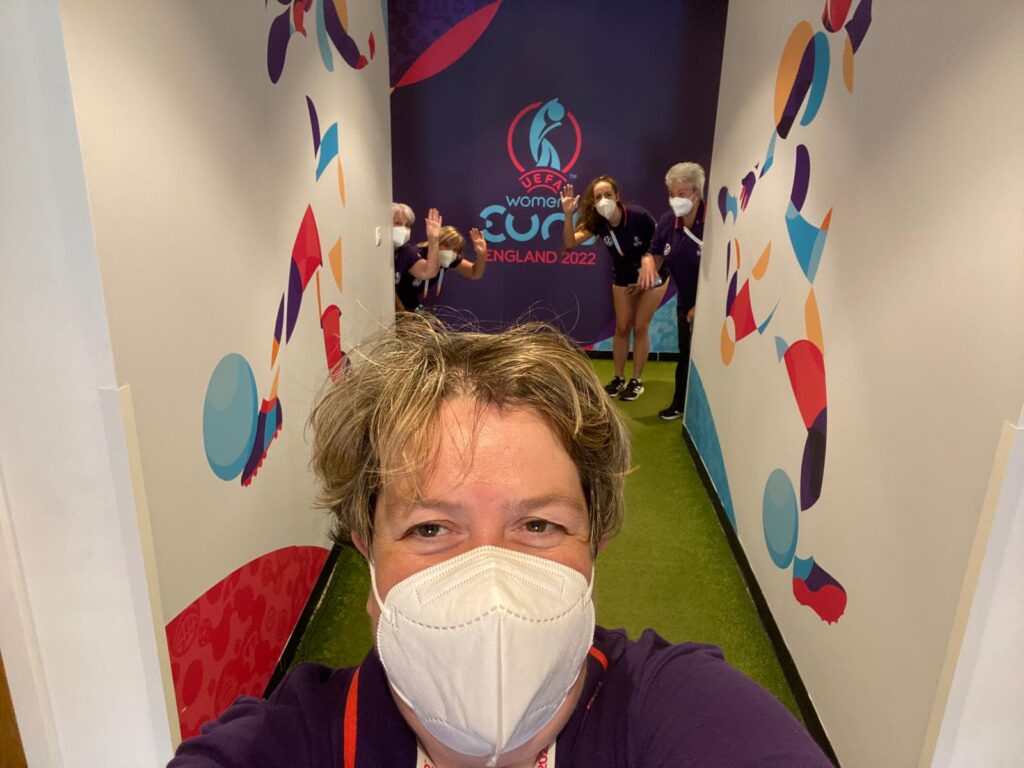
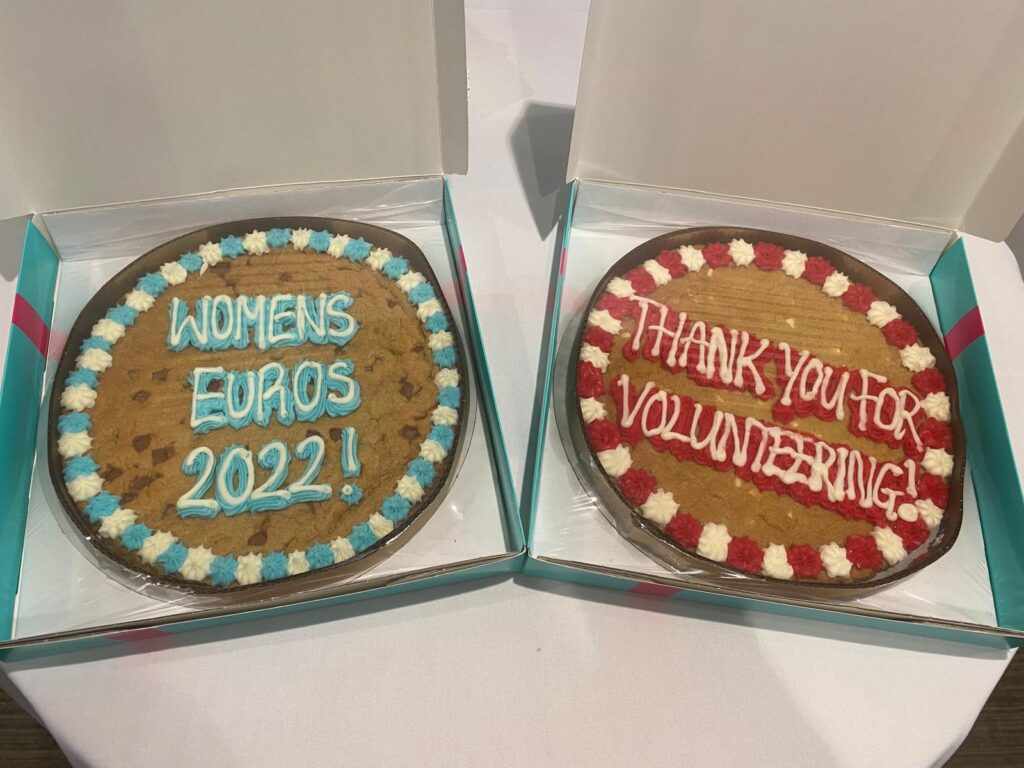

Debbie Arnold
Debbie Arnold, 62, has been volunteering for 24 years, including the 2012 Olympics, Commonwealth Games, and the World Athletics Championships.
Volunteers are really important in the running of sporting events. They’re enthusiastic and bounce off the energy of the supporters and spectators so therefore you get a much more upbeat experience as a customer.
At the Glasgow Commonwealth Games I was put within the athletes’ post-event rooms which was a standout moment.
Greg Rutherford came in, and he was just so excited he had won his gold medal. He threw the medal around me and said, ‘Hold onto this whilst I eat my sandwiches’, and there I was with his medal around my neck.
Volunteering took me out of my comfort zone and I liked that. I wanted to be pushed.
I had to be very organised, thorough, and learn what I needed to say to people but I enjoyed that responsibility.
I got into it through my kids initially. Their primary school didn’t have a netball team so I offered to run it and started the team.
I loved doing it because it was young children who at the beginning would be scared of the ball to then catching and shooting and actually creating the game which was lovely.
When my kids turned 18 and 21 I said, “You don’t need me anymore, this is going to be my year.” So I applied for the Olympics as well as the Paralympics in 2012.
It was just life-changing. Everyone is really excited because of the thrill of the event and it feeds through you. I loved being surrounded by people who are having a good time. It’s very uplifting, however, it is also exhausting.
You might be on your feet all day long, barely had anything decent to eat, and get there an hour before the spectators come but you didn’t care. You just didn’t care, the thrill of it was amazing.
Sidelines Recommends

‘It could happen anywhere, to anyone’ – the charities saving lives in sport
Christian Eriksen’s cardiac arrest at Euro 2020 sparked conversations about cardiac health in elite sport – but what about saving lives out of the spotlight? From fundraising raffles to mobile heart screenings, meet the charities working to keep young athletes safe….
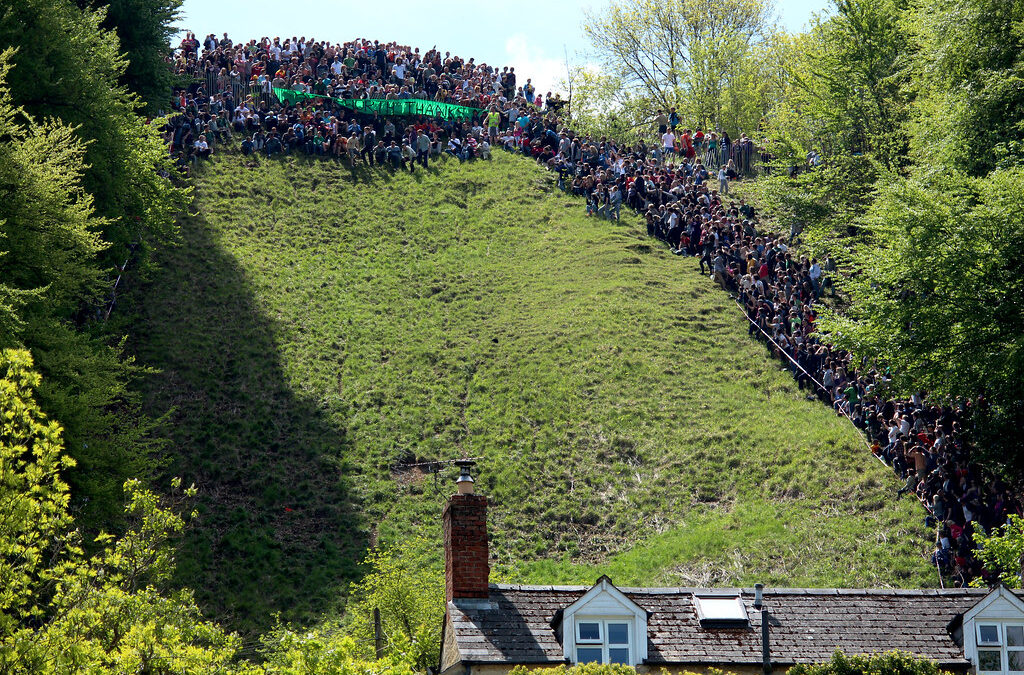
Cheese rolling: meet the team behind world-famous Cooper’s Hill event
Each year, the world’s wildest community sport takes place on Cooper’s Hill: cheese rolling. Sidelines uncovers more. The small village of Brockworth in Gloucester has come into the spotlight once again. Their annual cheese-rolling event involves participants chasing…
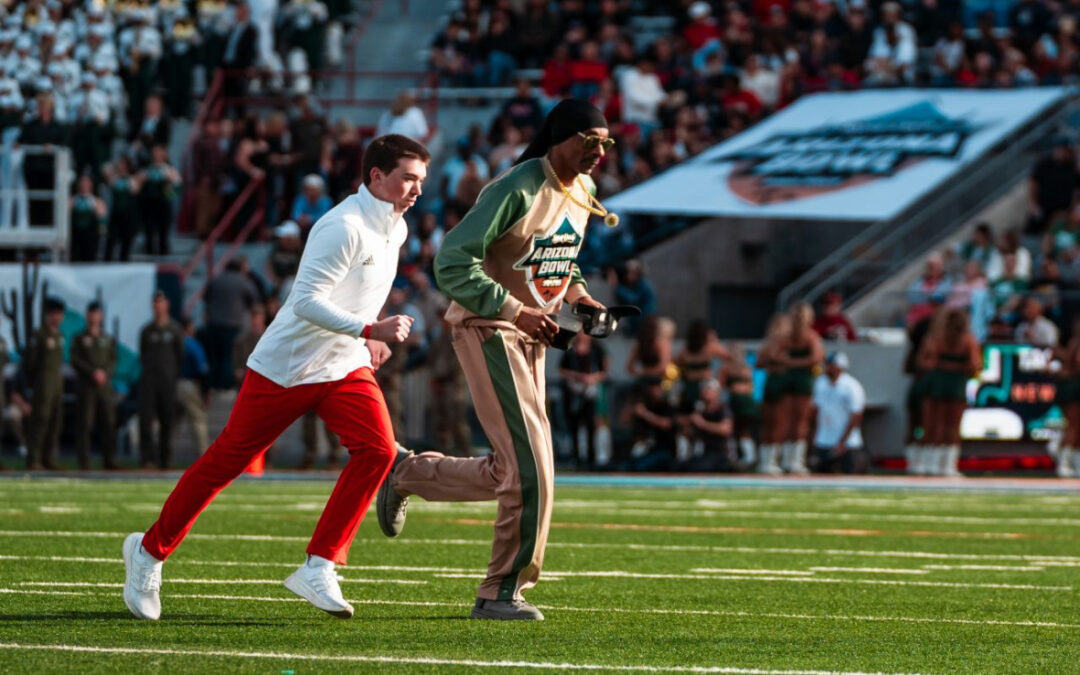
From the laundry room to snaps with Snoop Dogg: inside American football
He doesn’t score goals or lift trophies, but when a helmet breaks, something goes missing, or Snoop Dogg needs a running partner, American football equipment manager Patrick Reaves is always one step ahead. Doing laundry and fixing gear for over 100 players and…


